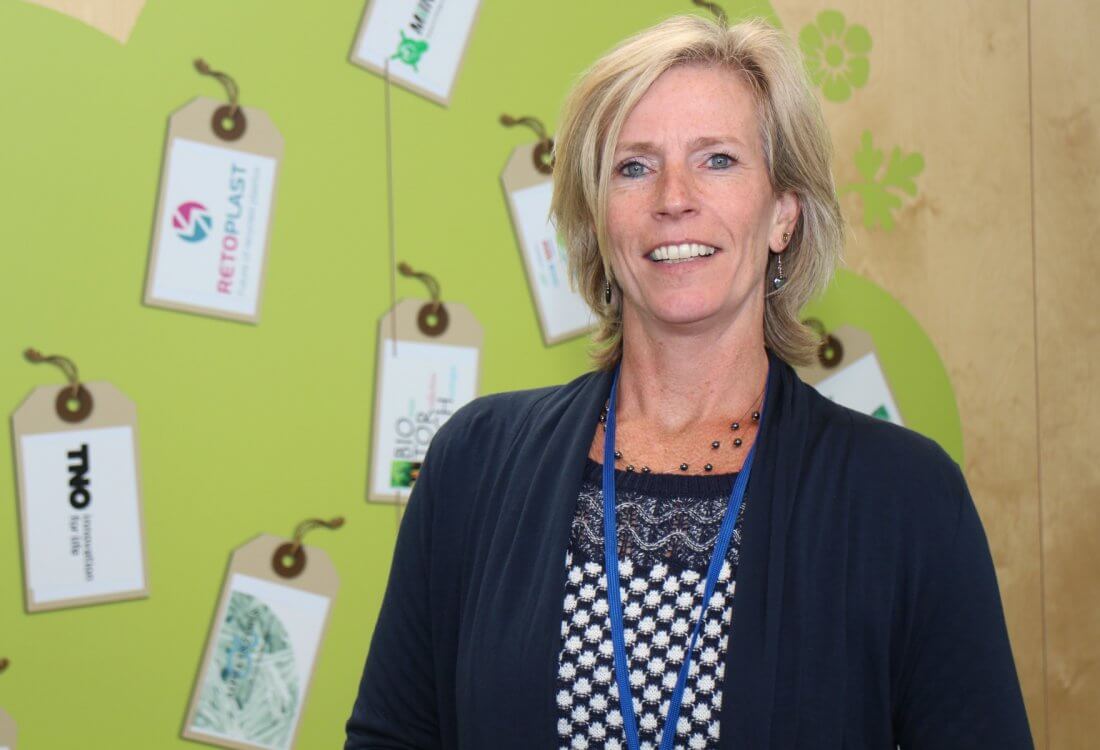The demo facility consists of a lab, work stations and an area where entrepreneurs in the green chemical industry can build their pilot plants. One important aspect of this is that the facility falls under the industrial chemical licence of SABIC. According to Petra Koenders, director of the Green Chemistry Campus, this is a major advantage for many companies. “This means that projects that use innovative green chemical raw materials can start operating quite simply. This licence is indispensable when you are in the scale-up phase. And this licence is not so easy to obtain otherwise.”
In addition to physical facilities, the demo facility also offers services, such as a laboratory service that offers analytical support. “Innovation in the green chemical industry in order to move a development forward can be a very capital-intensive process”, explains Koenders. “If this is not possible in a shared facility context, then it is almost impossible to convert an idea to a commercial product. This process requires complex and very expensive equipment. A facility such as this one forms an important link in the chain.”
Test facilities
Standard tests can be performed in the facility’s own lab. In addition, the Campus has also arranged access to the testing facilities of large companies in the region, such as SABIC, Cargill and Cosun Labs; companies that are active in the chemical industry, but also in the cross-over area from agro to chemistry. “They make their facilities available to the SME via the Campus. They help you to identify what you need, how this can be organised and which analysis questions you have. Asking the right questions requires a great deal of knowledge. And that is important, because even if these parties do not charge commercial prices, it is not free of charge either.”
The Campus also supports SME in other areas. “We have a kind of menu with lots of services that a company needs to get to the next phase. This varies from helping to determine the content and legal aspects of an IP application correctly, to assistance in making a marketing or business plan and funding questions. We do not do this all ourselves, but work together with the ecosystem of the Biobased Delta surrounding the Campus. For example, there are various start-up centres in the region who have connections to business and marketing coaches. We do not provide funding ourselves, but help entrepreneurs to organise funding from other parties. And we bring the companies into contact with knowledge institutes. Basically, we try to minimise the hassle in areas that a company will benefit from.”
The fact that the demo facility meets a certain need is evidenced by the fact that companies have been active there since November. There is still some space left, but according to Petra Koenders it will not take long before this space is also filled. “We are speaking to a number of companies that are nearly in the scale-up phase and are busy organising the funding. As soon as they receive a ‘go’, they can join the facility.” Of course a stay in the demo facility is temporary. Following a successful scale-up phase, the companies need to continue developing elsewhere; on the campus site, or elsewhere.
Challenges
The collaboration with SME can also prove profitable for large companies. The Green Chemistry Campus, N.V. REWIN West-Brabant and the local Rabobank branches in West-Brabant and Zeeland have launched a new programme, in which they search for solutions to challenges defined by the market.
This involves a global search for parties that have a (partial) solution to these challenges. They work closely with these parties to bring the idea to fruition, by providing “knowledge, money and acquaintances”. This takes place in so-called challenges. Koenders: “We have asked companies such as Cargill, Cosun and Rodenburg what problems they are facing that are important to the business, but which they cannot solve. This includes creating value from waste flows, or new processes for the energy efficient removal of water from biomass. We make these problems accessible to start-ups, scale-ups or knowledge institutes that have or are in the process of finding an innovative solution.” Koenders mentions that this programme also offers room for parties who want to issue a challenge.
Cooperation
“Over a period of two weeks, we take the parties through a process in which we listen to the solutions and work together to determine in which areas we can help the further development of their solution. Then we draw up an innovation contract, in which the parties indicate which role they will fulfil and how. The innovation contracts help to work out the solution in a targeted manner to a level at which it becomes commercially feasible. This can include a new application, a new factory or a new product-market combination.”
“Using this approach, we want to bridge the ‘traditional gap’ between large companies and highly innovative entrepreneurs and thereby also strengthen and broaden the economic development of the region and accelerate the transition towards a Circular Biobased Economy. The aim is also to achieve even more intense collaboration within the ecosystem that the Campus forms part of and to help companies move forward. We do not want to run a boot camp that stops at the contract; we want to take innovations a step further and guide them towards something truly meaningful.”
The definitive programme will be launched on 18 December, during the opening of the demo facility.
This article was created in cooperation with Biobased Delta




